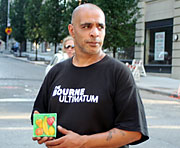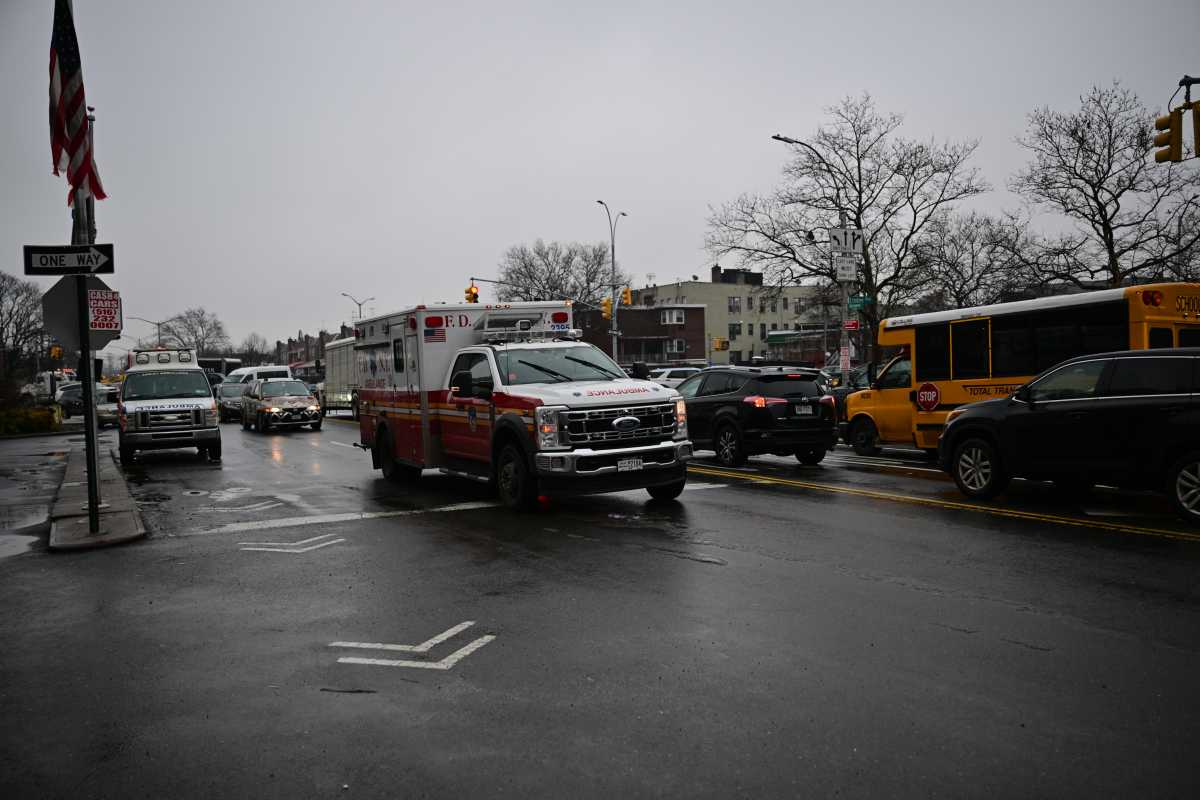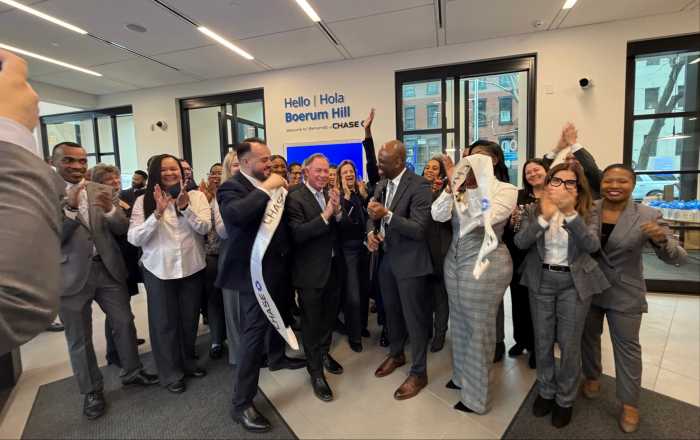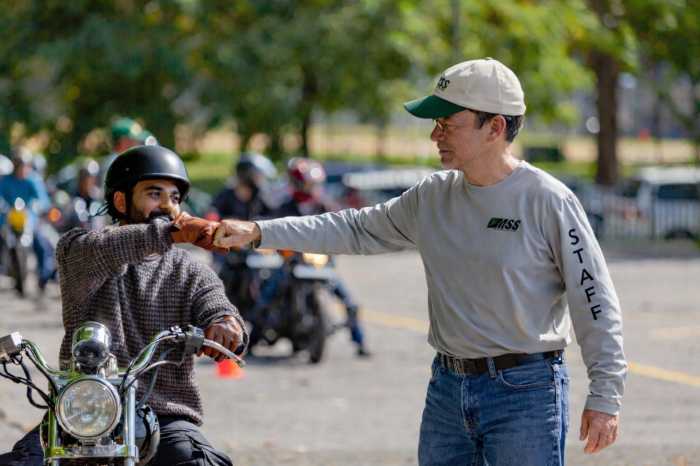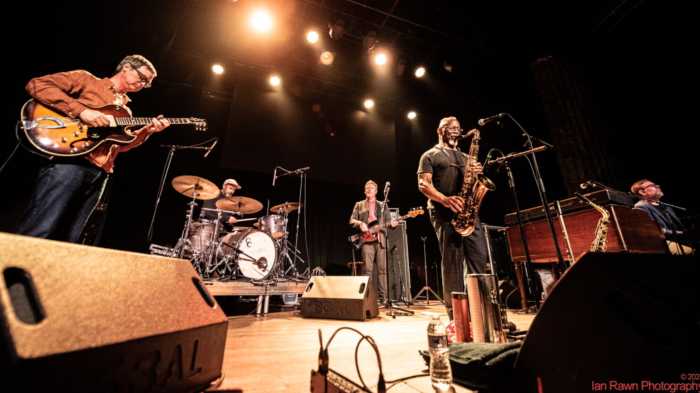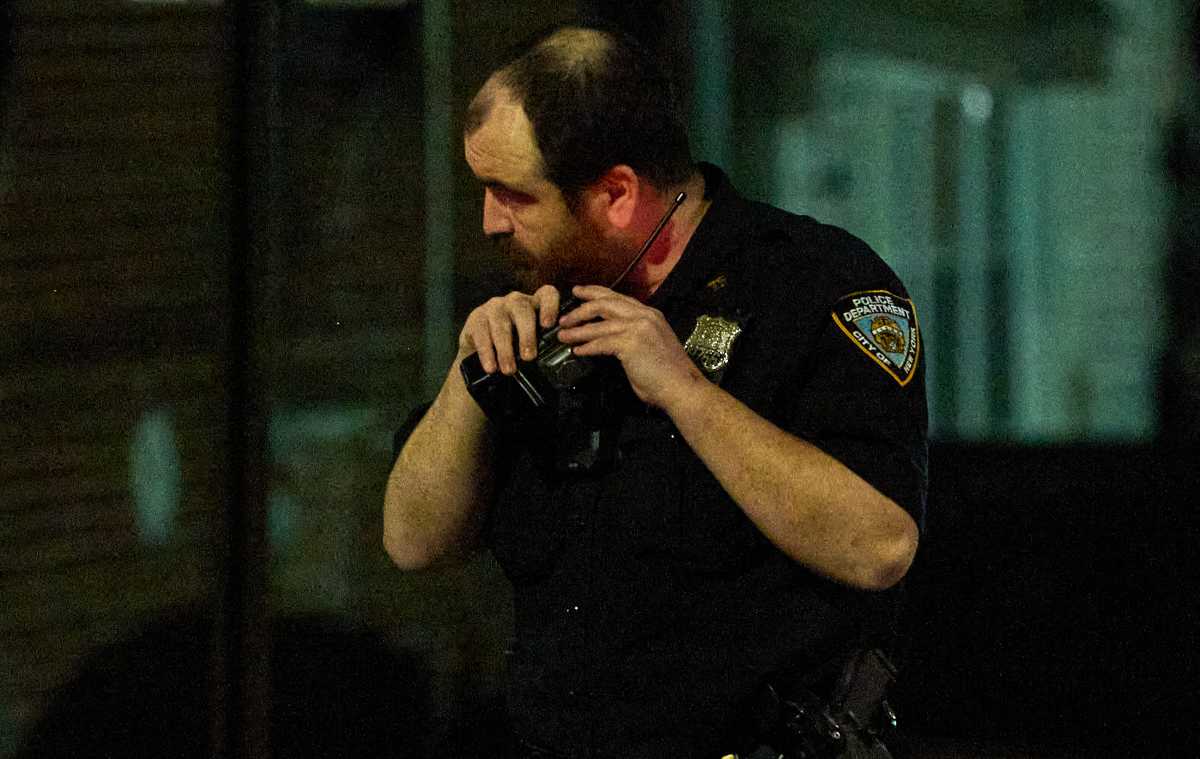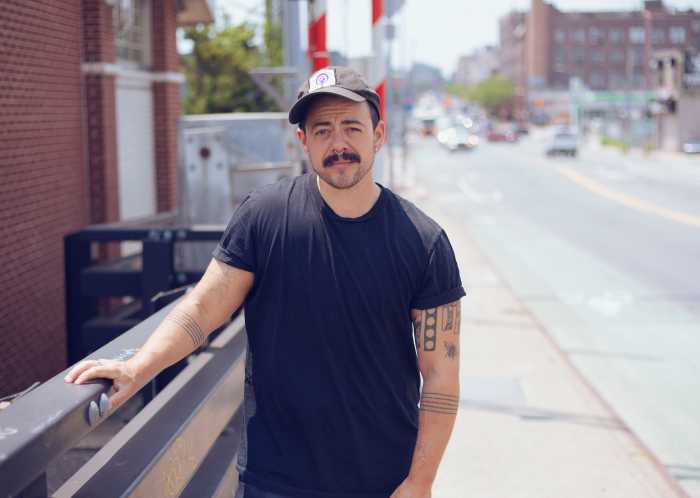Panhandling in DUMBO has gotten out of hand, judging by complaints from area residents at a crime prevention meeting last week.
The hour-and-a-half long meeting was held so that the police could give the public tips on how to avoid becoming a victim of crime — but it quickly became an inquisition into why the police have not cracked down on the handful of panhandlers who have been working — some say working over — the rapidly gentrifying neighborhood for almost a year.
The best advice local cops could give was to tell residents to stop giving handouts, said 84th Precinct Crime Prevention Officer John Kenny at last Thursday night’s meeting, which was hosted by the DUMBO Improvement District.
“People are giving panhandlers money, and as long as that happens they’re going to stay,” Kenny said.
Panhandling is not a crime, as long as the begger is not standing too close to an ATM. Merely asking passersby for loose change is legal as long as it does not become too aggressive.
That’s a frustrating reality for Peter Sunwoo, founder of DUMBOwatch, a new crime-prevention group. Sunwoo says his group isn’t anti-panhandler, but the message that panhandling sends to criminals — “That there’s easy money to be had in DUMBO” — leads to crime, he said.
“We’re not against panhandling, but it brings muggers, burglars and drug dealers into the neighborhood,” Sunwoo said.
He added that his group is worried about panhandlers who use coercion to get what they want. Aggressive panhandling hurts the quality of life for DUMBO residents, he said, complaining specifically about a group of three donation solicitors who work the corner of Washington and Front streets.
“We support freedom of speech and we respect a panhandler’s right to ask for help, but when they get money through intimidation, either by physical or verbal harassment, then DUMBO residents are losing their freedom and their rights because they’re afraid to go out in their own neighborhood.”
In a Web posting, DUMBOwatch said it will pick a day on which residents would be urged to call 311 to report panhandlers. In addition, the group said it would soon begin “taking photographs of every suspicious loiterer” so that the police would have pictures “in the case of … crime.”
Several residents attacked the latter proposal, an indication that the neighborhood is hardly united on solving the problem.
“[Photos of] ‘every suspicious loiterer,’” one person posted. “Are you going to send them to Guantanamo after that?”
The good news about the panhandlers, of course, is that their emergence is something of an economic bellwether.
“Panhandling tends to coincide with a neighborhood becoming more affluent,” said Linda Scott, Brooklyn’s community director for Common Ground, a non-profit group that works for the city’s Department of Homeless Services to reduce street homelessness.
“Panhandling follows the money, so if you go to East New York, you don’t see it, but in a neighborhood like DUMBO, it’s more prominent.”


